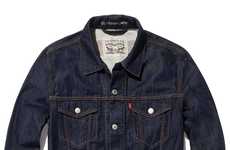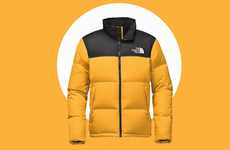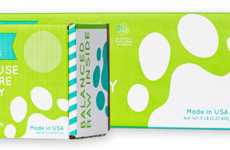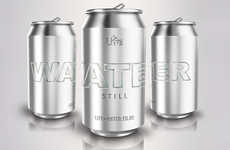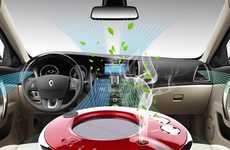



Consumer spaces incorporate real-time recycling initiatives and programs
Trend - Brands are curating spaces or creating products that offer "live" recycling over the course of the purchase journey. These products and experiences give consumers the opportunity to actually engage in consumption habits that lessen their ecological footprint, allowing for more interaction and less sermonizing around the subject of environmental change and betterment.
Insight - For many, the awareness of climate change and its consequences turns into pressure for adopting better and more ethical consumption habits. This motivates individuals to strengthen their commitment by pledging to take action when it comes to issues of sustainability, resulting in the prioritization of hands-on experiences that promote eco-conscious consumerism. In turn, this alleviates guilt as it gives individuals a sense of purpose by allowing them to contribute in more tangiable ways.
Insight - For many, the awareness of climate change and its consequences turns into pressure for adopting better and more ethical consumption habits. This motivates individuals to strengthen their commitment by pledging to take action when it comes to issues of sustainability, resulting in the prioritization of hands-on experiences that promote eco-conscious consumerism. In turn, this alleviates guilt as it gives individuals a sense of purpose by allowing them to contribute in more tangiable ways.
Workshop Question - Consider how your brand could incorporate real-time recycling products or initiatives into its business model.
Trend Themes
1. Live Recycling - Brands are creating products and experiences that offer real-time, hands-on recycling opportunities to consumers, prioritizing eco-conscious consumerism and lessening the ecological footprint through interactive experiences.
2. Sustainable Energy Gym Equipment - Gyms are turning human effort and energy into sustainable electricity by employing energy-harnessing workout equipment that reduces environmental impact and decreases electric bills by harnessing human power generated during workouts.
3. Circular Economy Programs - Recycling initiatives like IKEA's Take Back program encourage the return of unwanted furniture to stores in exchange for store credit and help promote a more sustainable lifestyle while contributing to the circular economy.
Industry Implications
1. Eco-conscious Consumer Goods - Brands in the consumer goods industry can leverage the trend of live recycling by creating products with a focus on real-time engagement, transforming into opportunities for consumers to lessen their ecological footprint.
2. Sustainable Energy - Gym equipment manufacturers can look to innovate by creating sustainable energy harnessing equipment that translates human energy into directly sustainable electricity, greatly reducing the gyms'environmental impact.
3. Circular Economy Recycling - Companies can promote a sustainable lifestyle and contribute to the circular economy by creating recycling initiatives just like IKEA's Take Back program, which encourages recycling and reusing of old furniture instead of discarding them improperly.



